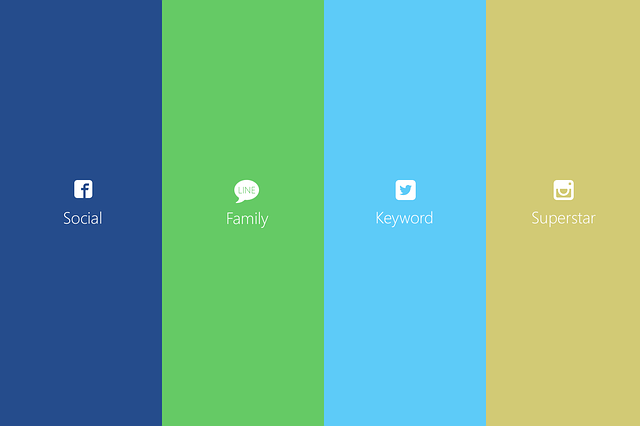Align business goals with user demographics on social media platforms like Facebook, considering content format and audience preferences. Conduct a competitor analysis to understand target audience activity and industry trends for informed platform selection. Tailor content strategies based on platform strengths to enhance engagement and resonate with diverse audiences.
Choosing the right social media platforms is vital for any business aiming to thrive online. This guide helps you navigate the process by focusing on key considerations. First, assess your business goals and target audience. Next, evaluate each platform’s reach and demographics to match your audience’s interests. Explore content format preferences and analyze competitor presence on platforms like Facebook. Lastly, stay ahead of industry trends to ensure your strategy remains relevant and effective.
- Assess Your Business Goals and Target Audience
- Evaluate Each Platform's Reach and Demographics
- Consider Content Format and Engagement Preferences
- Analyze Competitor Presence and Industry Trends
Assess Your Business Goals and Target Audience

Before deciding on which social media platforms to use for your business, it’s crucial to assess your goals and understand your target audience. Different social media channels cater to diverse user groups with varied interests and behaviors. For instance, Facebook is a versatile platform attracting a broad spectrum of users from all demographics. If your business aims to connect with a general audience, especially those interested in character development tips or seeking communication skills training, Facebook could be an excellent starting point.
Consider the nature of your products or services alongside your target audience’s preferences. If you specialize in memory retention methods for test anxiety management, platforms known for their content-sharing and educational content, like Facebook, can help reach students and parents actively searching for such solutions. Assess where your audience spends their time online and tailor your strategy accordingly to maximize engagement and build a strong social media presence.
Evaluate Each Platform's Reach and Demographics

When choosing social media platforms for your business, it’s crucial to evaluate each platform’s reach and demographics to match your target audience. Facebook, with its vast user base of over 2.8 billion monthly active users, offers immense potential for businesses looking to expand their reach. However, understanding the unique characteristics of each demographic within Facebook is essential. Different age groups, interests, and geographic locations have varying engagement patterns, ensuring that content tailored to specific segments can yield better results.
A simple study group benefits from Facebook’s versatility; it allows for easy communication and content sharing among members, fostering a collaborative environment. Conversely, outlining for complexity in project management or debate topics for students might be more effectively managed on platforms with enhanced text-based interaction capabilities, like Twitter or LinkedIn. Consider your business goals and the nature of engagement you seek to foster when deciding where to invest your time and resources. Visit us at exam preparation techniques anytime for more tailored advice.
Consider Content Format and Engagement Preferences

When selecting social media platforms for your business, understanding your content format and audience engagement preferences is paramount. Each platform caters to different types of content and user interactions. For instance, Facebook, with its diverse demographic reach, is ideal for sharing a mix of text posts, images, and even live videos. This versatility makes it suitable for businesses offering various services or products that appeal to broad audiences.
Consider your content creation strengths as well. If you excel at creative writing prompts or video editing tutorials, platforms like Instagram (for visually appealing content) or YouTube (for longer-form video content) can be powerful tools. Conversely, if you specialize in essay writing guides, LinkedIn might be more suitable due to its professional focus and targeted audience interested in academic or business-related content. Remember, aligning your content format with the platform’s strengths ensures better engagement, making it easier for your message to resonate with your target market. Give us a call at Learning Strategies for tailored guidance on choosing the right digital channels.
Analyze Competitor Presence and Industry Trends

Before deciding on which social media platforms to focus your business efforts, it’s crucial to analyze the competitor landscape and understand industry trends. A thorough study of your competitors’ online presence can reveal valuable insights into where your target audience is most active. For instance, if your rivals are heavily invested in Facebook, it might indicate that this platform holds significant reach within your niche. Keep an eye on industry-specific groups and forums to gauge the channels that professionals and enthusiasts use for communication and content sharing.
Moreover, exploring online study groups and communities centered around relevant topics can offer a unique perspective. These groups often adapt to current trends and tools; for example, if video editing tutorials have gained traction, you might find your target audience actively engaging on platforms that support this type of content. By combining these observations with effective note-taking strategies, you can identify the social media platforms that align best with your business goals and customer preferences.
When selecting social media platforms for your business, a strategic approach is key. By assessing your goals, understanding your audience, and evaluating platform-specific trends, you can make informed choices. Facebook, with its vast reach and diverse demographics, remains a powerful tool. However, tailor your content to align with each platform’s format and engagement preferences to maximize impact. Keep an eye on competitors and industry shifts to stay relevant, ensuring your social media strategy evolves with the digital landscape.



